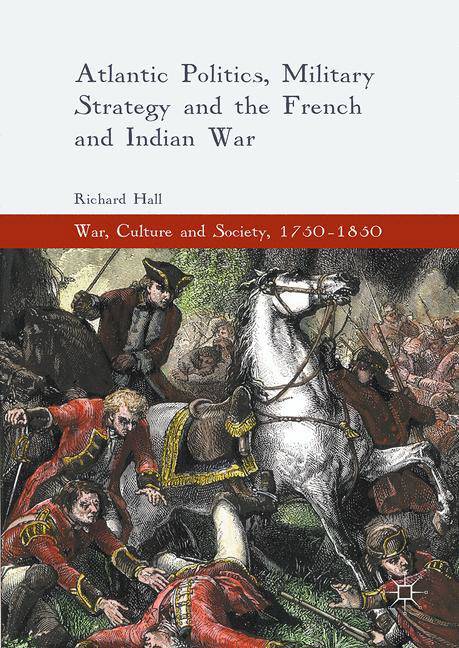
- Afhalen na 1 uur in een winkel met voorraad
- Gratis thuislevering in België vanaf € 30
- Ruim aanbod met 7 miljoen producten
- Afhalen na 1 uur in een winkel met voorraad
- Gratis thuislevering in België vanaf € 30
- Ruim aanbod met 7 miljoen producten
Zoeken
Atlantic Politics, Military Strategy and the French and Indian War
Richard Hall
€ 105,59
+ 211 punten
Uitvoering
Omschrijving
1755 marked the point at which events in America ceased to be considered subsidiary affairs in the great international rivalry that existed between the colonial powers of Great Britain and France. This book examines the Braddock Campaign of 1755, a segment of the wider 'Braddock Plan' that aimed to drive the French from all of the contested regions they occupied in North America. Rather than being an archetypal military history-styled analysis of General Edward Braddock's foray into the Ohio Valley, this work will argue that British defeat at the infamous Battle of the Monongahela should be viewed as one that ultimately embodied military, political and diplomatic divergences and weaknesses within the British Atlantic World of the eighteenth century. These factors, in turn, hinted at growing schisms in the empire that would lead to the breakup of British North America in the 1770s and the birth of the future United States. Such an interpretation moves away from the conclusion so often advanced that Braddock's Defeat was a distinctly, and principally 'British', martial catastrophe; hence allowing the outcome of this pivotal event in American history to be understood in a different vein than has hitherto been apparent.
Specificaties
Betrokkenen
- Auteur(s):
- Uitgeverij:
Inhoud
- Aantal bladzijden:
- 266
- Taal:
- Engels
- Reeks:
Eigenschappen
- Productcode (EAN):
- 9783319306643
- Verschijningsdatum:
- 29/06/2016
- Uitvoering:
- Hardcover
- Afmetingen:
- 155 mm x 220 mm
- Gewicht:
- 460 g

Alleen bij Standaard Boekhandel
+ 211 punten op je klantenkaart van Standaard Boekhandel
Beoordelingen
We publiceren alleen reviews die voldoen aan de voorwaarden voor reviews. Bekijk onze voorwaarden voor reviews.







